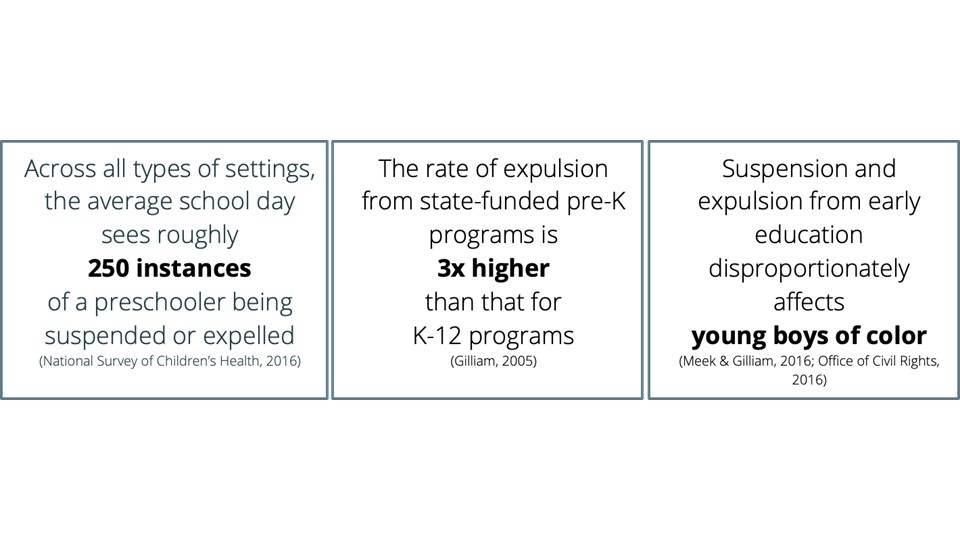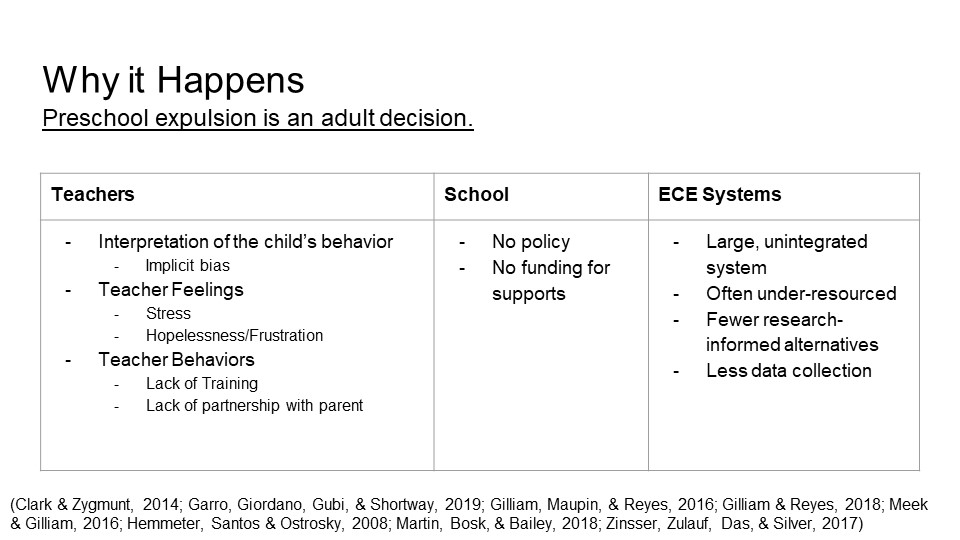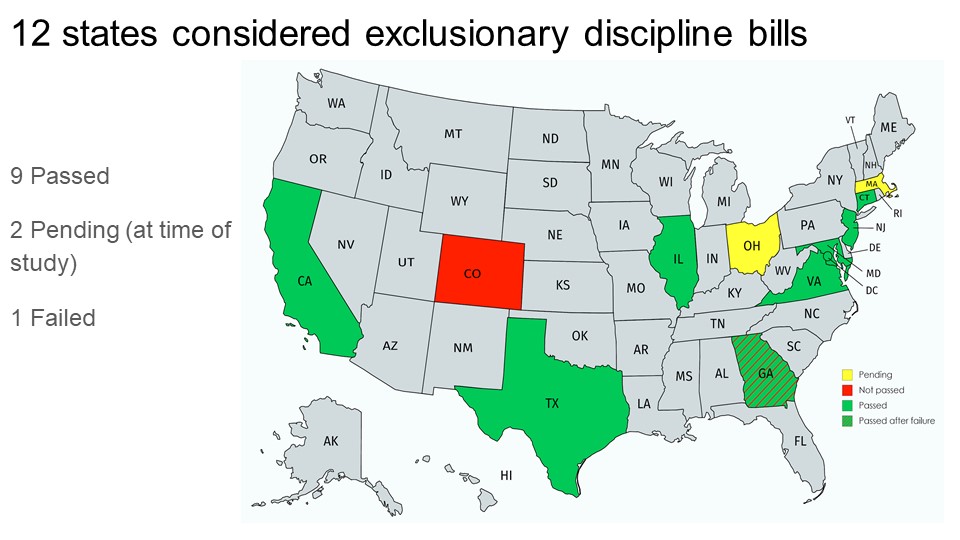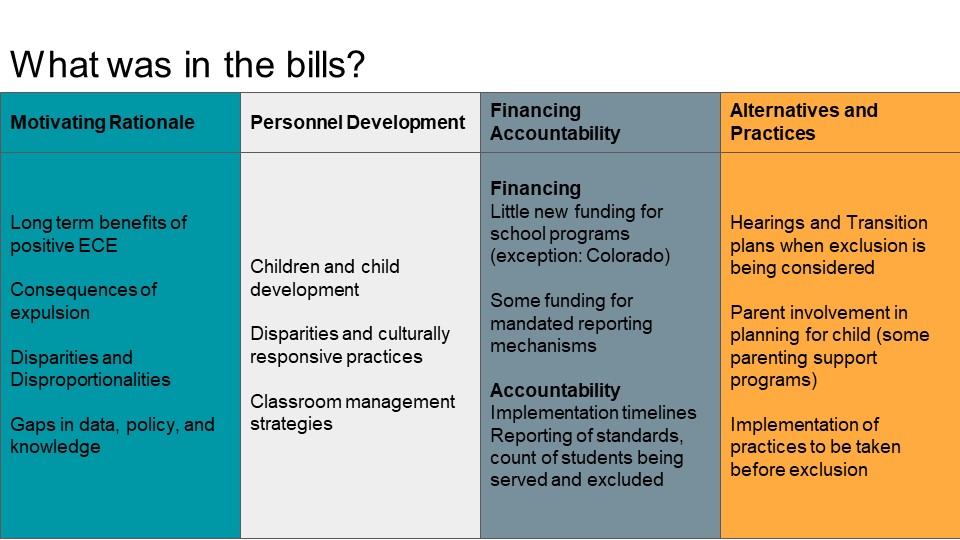- Alysse Loomis, Annie Davis, and Yonah Drazen
- February 05 2020
- W62-2020
- Link to W62-Slides-A-Working-Framework (PDF)



In 2005, a landmark national study by Gilliam revealed that preschool children were being expelled or suspended at a rate that was three times higher than that for K-12 programs. Children exposed to exclusionary discipline such as expulsion and suspension often experience educational and socio-emotional challenges as a result of these types of punitive practices, which disproportionately affect young boys and children of color. In this webinar, Alysse Loomis, Annie Davis, and Yonah Drazen provide an overview of what we know about the use of exclusionary discipline in early childhood education settings, the status of state-level legislation to prevent or limit the use of exclusionary discipline with preschool students, and offer suggestions for developing legislation informed by the latest available research evidence. The presenters propose a framework for evaluating relevant legislation and discuss evidence-based alternatives to exclusionary discipline.
Recording of the Webinar
Highlights from the Webinar
(Clicking on pictures will take you to the webinar recording)
Categories
Child Development & Well-Being, Children, Early Childhood Care & Education, Education & Training



